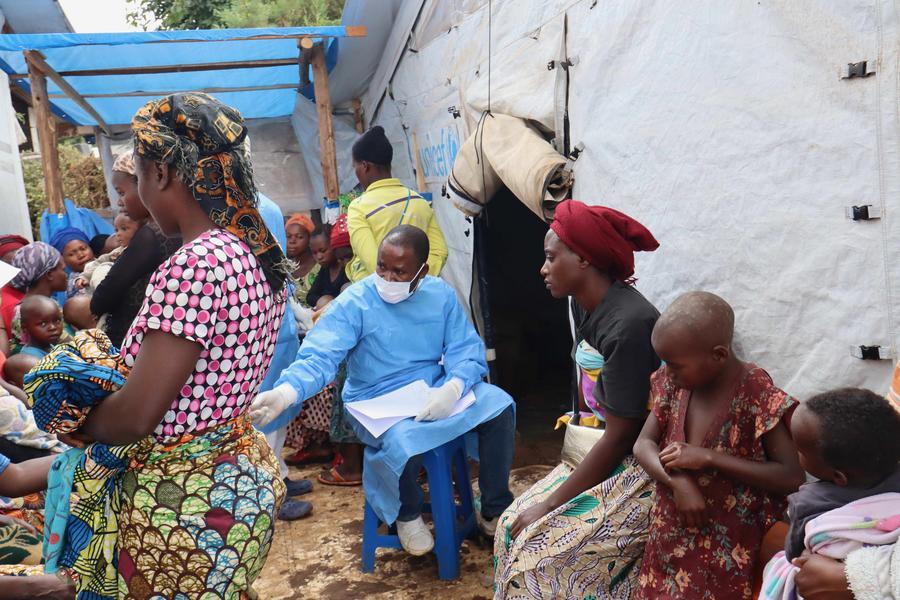
Patients who caught mpox and their family are seen at a
mpox treatment center on the outskirts of Bukavu, the South Kivu province, the Democratic Republic of the Congo (DRC), on Aug. 31, 2024. [Photo/Xinhua]
The Africa Centers for Disease Control and Prevention (Africa CDC) has called for further strengthening mpox detection and surveillance measures as the total number of cases in Africa climbed to 26,543, including 5,732 confirmed cases and 724 deaths, since the start of 2024.
Africa CDC Director-General Jean Kaseya, while addressing a special online media briefing on the multi-country mpox outbreak in Africa Thursday evening, said the African continent reported 3,160 new cases during the past week alone, including 434 confirmed cases and 107 deaths, eventually bringing the total number of cases reported this year to 26,543.
Noting that there has been an upward trend in the number of mpox cases since May, Kaseya said the recent upsurge in cases is mainly attributed to the increasing mpox detection capacity of African Union (AU) members.
"With improved surveillance, community awareness, and disease management, we are beginning to detect more cases, which has resulted in a declining trend in the fatality rate," Kaseya told reporters.
Data from the AU's specialized healthcare agency show that the cases were reported from 15 African countries across all five regions of the continent, with a case fatality rate of 2.73 percent.
It said children under 15 years of age accounted for 41 percent of all confirmed mpox cases reported on the African continent so far, and males account for 63 percent of all confirmed cases.
Noting that Eastern and Northern Africa regions are yet to report mpox-related deaths so far, the Africa CDC, in its latest mpox outbreak report issued Friday, said Morocco is the first country in the northern Africa region to report a confirmed case.
Central Africa is the most affected region with 23,761 cases, including 5,588 confirmed cases and 720 deaths, while Eastern African countries have reported 1,644 cases, of which 19 were confirmed.
Noting the rapid spread of the virus since May, mainly among countries neighboring the Democratic Republic of the Congo, a country that has emerged as the epicenter of the outbreak, Kaseya underscored the need to further strengthen cross-border surveillance measures across the affected countries.
In mid-August, the Africa CDC declared the ongoing mpox outbreak in Africa as a Public Health Emergency of Continental Security (PHECS). Soon after the Africa CDC declared PHECS, the World Health Organization (WHO) also declared mpox a public health emergency of international concern, activating its highest level of global alert for mpox for the second time in two years.
On Friday, the Africa CDC disclosed the launch of a joint continental response plan with the WHO. The six-month plan, running from September 2024 to February 2025, has an estimated budget of nearly 600 million U.S. dollars. Of this, 55 percent is allocated to mpox response efforts in affected countries, while the remaining 45 percent is directed toward operational and technical support through partner organizations.

